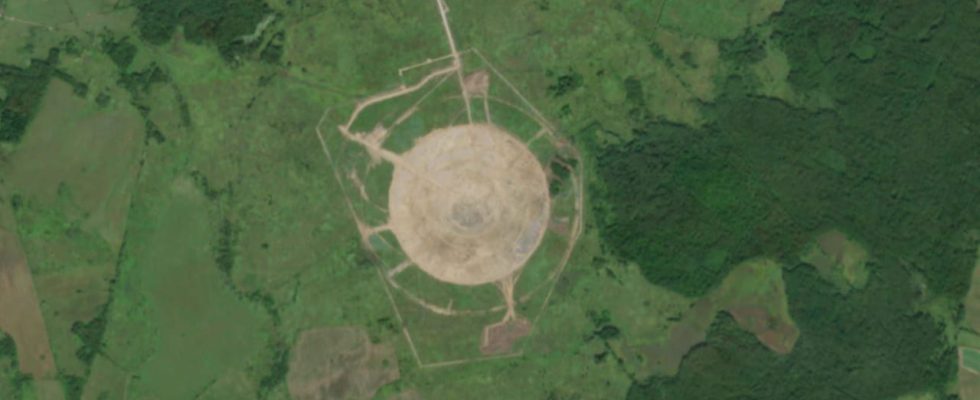This circle with a diameter equivalent to 12 football fields is located in Russia, 25 kilometers from the Polish border. Her name ? “The Monster of Kaliningrad”.
People who monitor Russian military sites using satellite images freely available on the Internet have been intrigued in recent weeks by a huge circular structure that has appeared in Kaliningrad, Russia. Kaliningrad is a Russian enclave located between Poland and Lithuania, bordered by the Baltic Sea. Its strategic position makes it a crucial point for Russia in Eastern Europe, providing it with maritime access and a significant military presence close to NATO.
With an impressive diameter of 1200 meters, or around 12 football fields, this circle (visible in the photo) is located near the Chernyakhovsk air base. It is just over 25 kilometers from the Polish border. The mysterious structure, described among other things as the “Kaliningrad Monster”, appears to be linked to Russia’s new 29B6 Container radar system. The first Container was put into service in 2013 in the Mordovia region, about 500 kilometers southeast of Moscow.
In March 2020, the Russian state agency reported that a second Container would be erected in Kaliningrad. According to Russian defense industry sources, suitable locations for the radar were then being sought. No details on the construction schedule or when the system would go live were revealed at that time.
The Container is a so-called “over-the-horizon” radar system. According to Russian sources, this long-range surveillance radar is capable of tracking, for example, missile launches or large groups of aircraft from more than 3,000 kilometers away. According to the Russian state agency, the aim of the Kaliningrad radar is to cover all of Europe, including Britain.
Long-range surveillance radars are part of Russia’s early warning system. The Container is made up of a transmitting station and a receiving station. According to satellite images, one of the stations is about 15 kilometers southwest of the gigantic structure. We can follow the construction work of the radar station thanks to a compilation of images from the Radio & Nukes account on X (formerly Twitter), a social media account sharing open source research.
